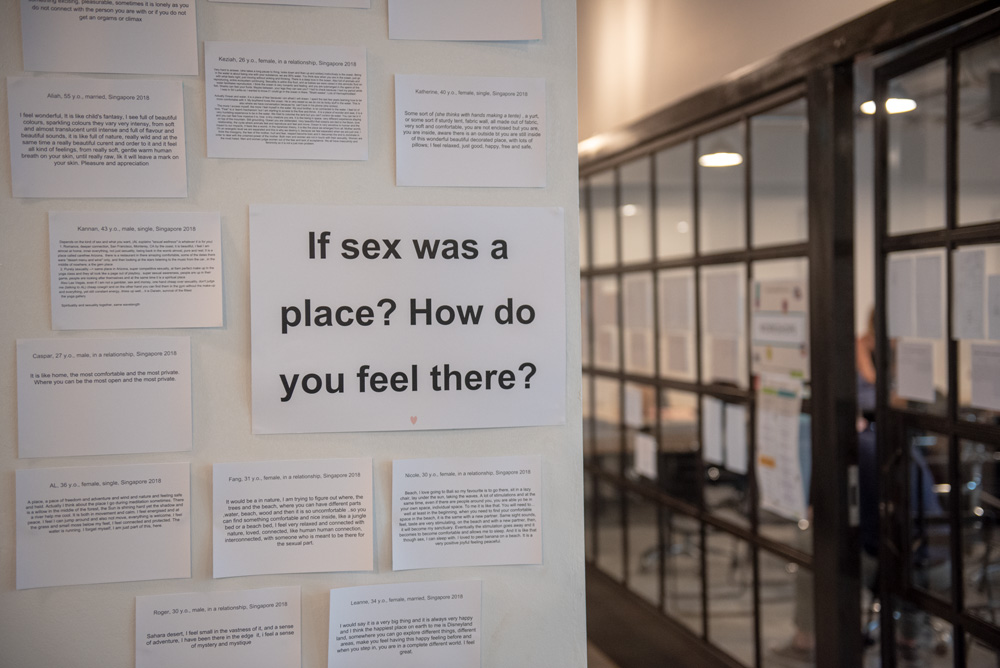SEX. INTIMACY. Awkward? ...Shame? Sexual Wellness is an important & normal part of everyday wellness - your health & wellbeing. Yet, conversations around this still remains taboo!
We speak with former consultant turned Sexual Wellness Advocate and Sex & Relationship Counselor + TEDx Speaker Erin - ...because sex, sexual wellness, love, intimacy, relationships impact our physical, emotional, self and relational happiness 🙏🏽.
Read on and let's explore the conversation together, shall we?
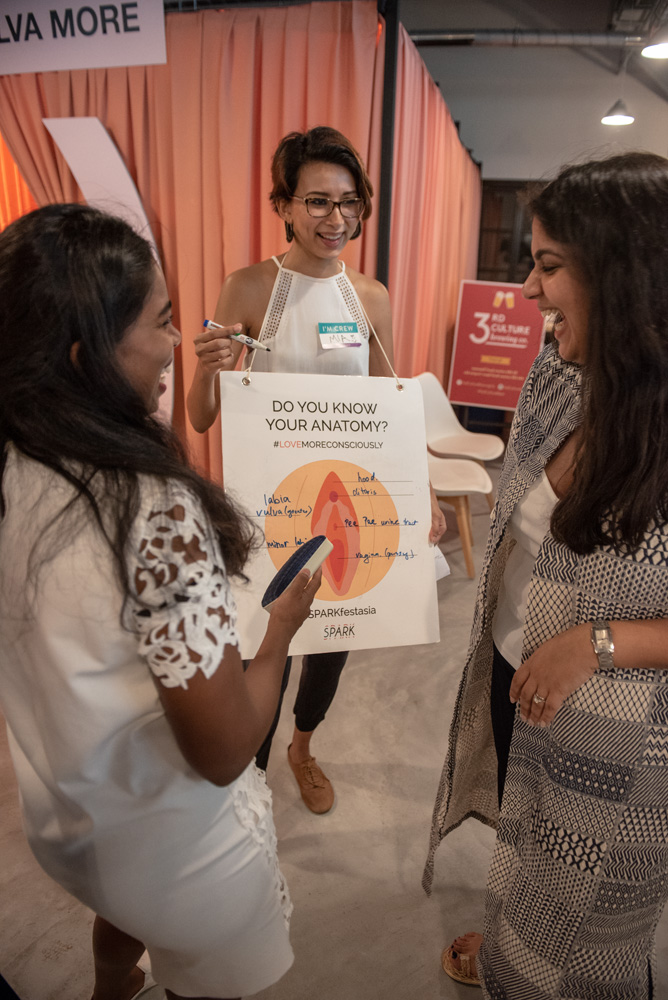
What is sexual wellness to you?
First, I want to emphasize that sex isn’t just intercourse or masturbation. We often automatically think about sex that way because that is the usual way it is portrayed around us.
To me, sexual wellness is part of our overall wellness and wellbeing. It includes the physical, emotional, relational and spiritual wellbeing - how we feel in our skin, the quality of our relationships, how connected we are with our sexuality. It’s very individual to each persona and like other parts of our wellness, it is something that changes through life and is a lifelong journey to maintain!
Why is sexual wellness important?
So in the context of what I just described as sexual wellness, it is important to be able to talk about sex because it is an integral part of being human. This doesn’t mean that you HAVE to talk about sex or be sexually liberal. It means being comfortable with the topic such that you are able to express and navigate yourself in this area. More tangibly, when you are not happy or feel fulfilled in one part of your life or when the challenges you are facing in this area affects you physically and emotionally, it would be difficult to compartmentalize that from your overall wellbeing and relationships.
Mal Harrison, the director of the Erotic Intelligence Centre in NYC, has said a few times - if you can’t speak up when it comes to your pleasure, how can we speak up in the boardroom? And while it’s not so black and white, I like this point of view because it gets me reflecting on the relationship between how expressed we are in different areas of our lives. If we are not able to freely express ourselves and are holding ourselves back in one area of our life, it has an impact on life overall. Sex and sexuality does not exist in a vacuum.
What is your personal journey with sexual wellness and relationships? What inspired you to become a sex + relationships counselor?
I’ve always been a sex geek at heart. Some people grew up loving fashion, or cars or cooking - I had an affinity for sex. Not the act of sex, but a curiosity about the human sexual experience and its connection to culture, psychology, wellness, relationships, etc.
I would be that friend who would share every new fact that I came across about sex with friends. I was that friend with whom friends felt safe confiding in when it came to talking about sex.
Though I’ve always known that this was something I was passionate about, what inspired me to take action was when I came across a company called Blue Bella, which has since pivoted to become a lingerie company.
At that time, it was a home party company that did at home workshops for women where they can also purchase pleasure products. What inspired me was the woman who started it - she was Oxford educated and the company also had a social mission to help educate and develop young women. It was the first time I saw that it was possible to do something different in this industry. And so I realized how much room there was to do things better and differently in this space.
This is also what inspired SPARK Fest Asia - change happens faster when the community comes together and we need more counsellors, educators, experts, entrepreneurs, change makers in this area!
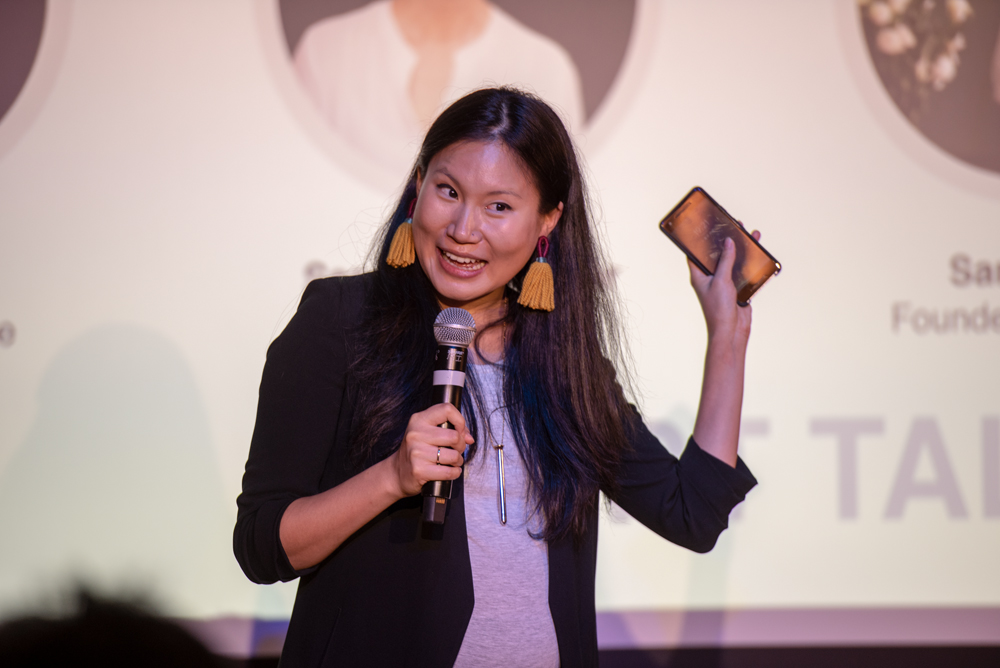
When you first became more aware on the various topics involving sexual wellness & relationships, were there any underlying subconscious biases that you had to consciously get rid of / work on?
There were plenty! Like most people, the sex ed that I received in school was primarily focused on reproductive health & disease and pregnancy prevention. While I proactively seemed out information about human sexuality, a lot of the subconscious biases about how I think sex should look like (as we call them - sexual and social scripts) still came from porn, friends, the media and romance novels. There were also gender roles and expectations I had for myself around sexuality and how I “should” behave that laid subconscious.
I don’t think it’s realistic to “get rid” of them all - it’s a life long journey to continue to reflect, become aware and to choose and create our sexual wellness and relationships intentionally. It’s life long because sometimes, we won’t identify these subconscious biases until we enter different life stages or encounter new life experiences. For example, I’m pregnant now and I’m slowly recognizing certain “scripts” or expectations I had around what being a mother looked like, how I think I should be or feel towards pregnancy and how it might affect my sexuality and relationships.
In Asia, where the topic on sex, fetishes, etc is typically a taboo, what in your upbringing / education do you think made you different and receptive to the topic?
Many people think it’s because of my upbringing that made me different and receptive to this topic. That may have been the case for others, but my upbringing was pretty typical for an asian household. My parents didn’t go out of their way to have “the talk” with me - I do remember my mother saving newspaper article clippings about teen pregnancies for me to warn me about not having sex too early! I think one thing that was helpful was that they were also not overly dogmatic about how I “should” be when it came to sex. They mostly just let me be!
One interaction that did have an impact on me was how our grade 7 teacher, Ms. Marziali, taught us sex ed. It wasn’t so much the content of what she taught - it was the way she taught it. She made it feel normal, like math or any other subject. That was the first time someone modelled for me what “being normal” about sex and sexuality looked like. I didn’t realize it then, but that definitely had an empowering effect for me.
Myths / misconceptions you often hear in the realms of sexual wellness?
Misconception #1: Only really “screwed up” people go to sex therapy
I really admire my clients and have the highest respect for them. It takes a lot, unfortunately, to overcome the stigma related to therapy in general to seek the support that one might need for a particular period in their life. Contrary to the belief that people who go to therapy or sex therapy have something seriously wrong with them, it is actually the people who do go to therapy who are the most courageous and resilient human beings I’ve met.
Misconception #2: Something is wrong with me
One of the most common question that I am asked is some version of “Is this normal?”. That question is often driven by a lack of understanding about our bodies and also a very narrow view of sex that we have grown up with. What is often misunderstood is just how diverse the human sexual experience is. Women ask whether the orgasms they are experiencing are normal - we wouldn’t ask that kind of question about how food tastes (because we know that it is our own taste buds and preference). But I often see a disassociation or a disconnect between the individual and their sexual body. It is as if we weren’t given permission to explore and really own this side of ourselves.
Misconception #3: Sexual desire is spontaneous, like fireworks.
“How do I get horny more often?” or “I wish I was 20 again - desire came so much more easily.” This myth is everywhere if you watch any romantic movie or book - a desire seems to take over and boom! sex is amazing. But in reality, sexual desire is more responsive than spontaneous - meaning, the environment, our thoughts, various factors will develop and grow the sexual desire that we experience. This means intentionally creating desire through making time, clear communication, actively searching and creating opportunities for sexual experiences. Some people resist this because “it’s not spontaneous” and feels manufactured. That is how ingrained this misconception is - that we’ve been conditioned to expect sexual desire to hit us like a spark that just suddenly gets lit.
Other common misconceptions:
- All women have lower sex drives than men
- Vulvas / vaginas are gross
- Size always matters
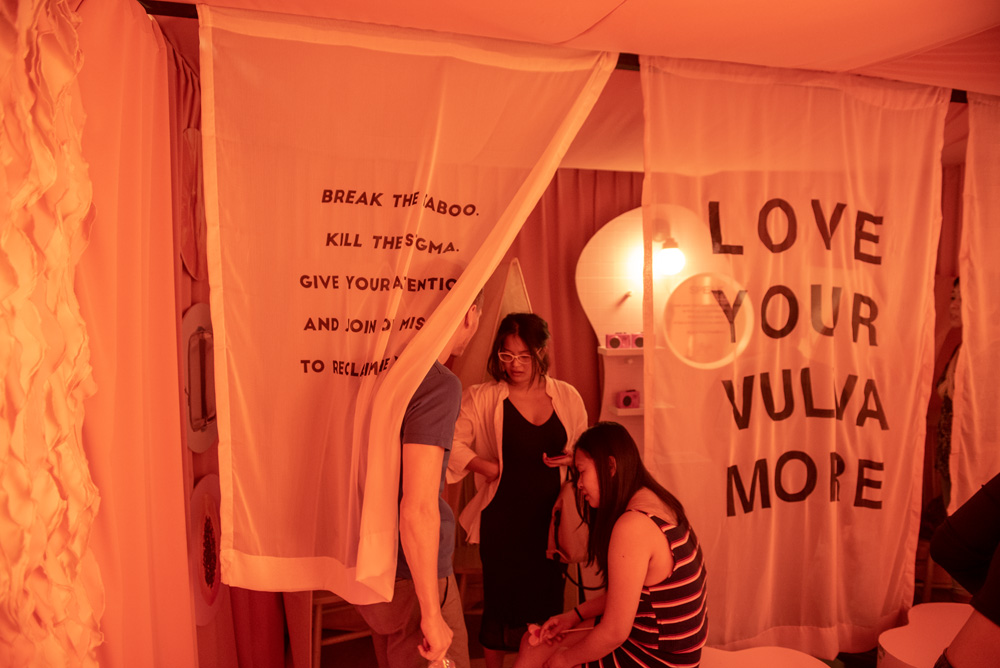
What are some ways you personally use to nourish your sexual wellness? Any little steps for individuals who are just starting on this journey?
Be open to challenging your own assumptions and ideas about how sex should be and how you or others should be sexually.
For vulva owners - take some time to have a look at your vulva. A lot of women have never or rarely do this. You don’t necessarily need to touch - just have a look and observe the thoughts and feelings that come up.
For penis owners - take some time to explore other parts of your body aside from your penis. Touch your nipples, run your hand through your hair, graze your inner thighs and the sides of your stomach. Try to find other erogenous zones and observe the thoughts and feelings that come up.
Find interesting articles or books and share about them with your partner or (close) friends and find opportunities to invite them to start talking about sex. Maybe suggest Come As Your Are for your book club! Talking about sex may feel awkward, but it takes practice to gain the muscle memory to have it become and feel like a normal part of your life.
What are some of your favorite sexual wellness brands?
There are so many fabulous ones that have been created in the last 2-3 years!
- Education: OMGYES, Tabu, Oh Joy Sex Toy Lubricants: Sliquid, Sustain, Bonk
- Toys: Vibease, Crave, Dame
- Apps: Desire Games, Bumble (yes, Bumble!)
- Accessories: Bijoux Indiscrets
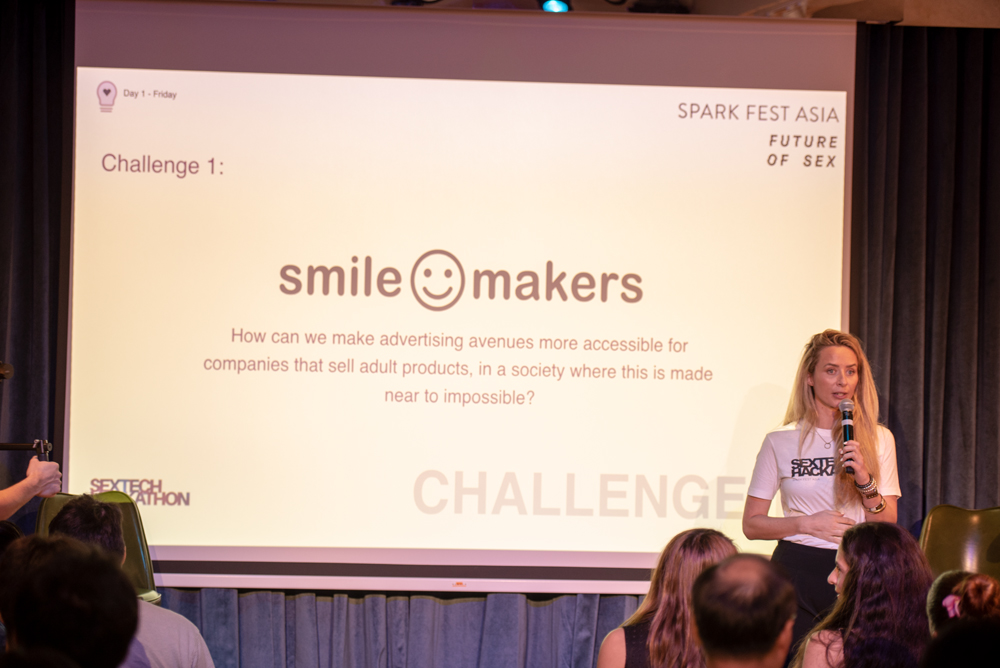
Who are some relatable personalities (sexologists, artists, educators, thoughts leaders, founders) in the sexual wellness space?
There are so many! Off the top of my head (and sorry if I missed someone! This is NOT a complete list!)
- Sexologists / Educators / Wellness Professionals: Sanderijn Van Der Doef, Kate Kenfield, Lindsey Doe, Emily Nagoski, Shirlene Toh, Julinda Lee, Ganesan Adaikan
- Founders: Sam Zhao (of Yummy), Polly Rodriguez (of Unbound), Alex Fine (of Dame Products), Dema Tio (of Vibease), Mattias Hulting (of Smile Makers)
- Thought Leaders: Esther Perel, Cindy Gallop, the Gottmans
I’d like to encourage anyone who is passionate or curious in this area to consider going into it. There is definitely an undersupply in this area that needs filling!
Please comment on the developments in the Sextech space.
I think the really exciting thing about this space is that it’s not just innovation in sextech that will change people experiences, but innovation in general. For instance, one of the speakers at SPARK Fest last year was Professor Adrian David Cheok from the Imagineering Institute based in Malaysia. He gave a talk on the technologies that he had been developing - in particular, technology where people can experience the five senses over the internet. Right now, we can see and hear via the internet. Professor Adrian has been working on communicating touch, smell and taste via the internet as well.
These technologies, while currently not yet applied to sextech, can fundamentally change how humans experience connection - something that has potential to impact the human sexual experience.
Other interesting sextech innovations that I’ve seen are:
A. Exseed, an at home sperm testing solution that not just tests for the reproductive health of the semen, but then uses that information to help men adjust and improve their overall lifestyle by making suggestions related to nutrition, exercise and overall wellbeing.
B. OMGYES, an online platform that is based on extensive scientific research to create an interactive way for people to learn about the female pleasure anatomy.
What do you think is the biggest thing or trend in the Sexual Wellness scene globally that has changed over the past few years?
Definitely the rise of more women and diverse communities entering the sexual wellness space has made a big difference in the quality and creativity of products & services in this area.
Another trend is the increasing awareness and attention being paid to overall wellness (nutrition, mindfulness) and mental health. By opening these conversations, the path naturally leads to the last piece of wellbeing - sexuality and relationships.
Another trend is the return of the #metoo movement. It has brought heightened attention to toxic masculinity, how broken our social scripts are around consent, pleasure and gender roles in this area - which naturally begs the question and subsequent reflection on what we need to do and change to shift the paradigm.
All of these trends coming together makes sexual wellness and sex tech an exciting place to be! In Asia and Singapore, we are also having our versions of these conversations. Even though this topic seems more taboo in Asia, what gives me hope is that consumers and people in this region tend to adopt technological trends more quickly - think mobile adoption or cashless payments. There is also a certain level of pragmatism and flexibility that exists in Asia that creates an exciting environment where people are more willing to try new things.
For example, Smile Makers, a pleasure products company based in Singapore, shared with us that they have found it easier to start conversations with muslim communities around initiatives to normalize and educate about sexual wellness than in certain western European countries.
And so if we can kick start conversations about sexual wellness and sextech here, even with its perceived taboo nature, it could open new perspectives, trends and engagement around this area.
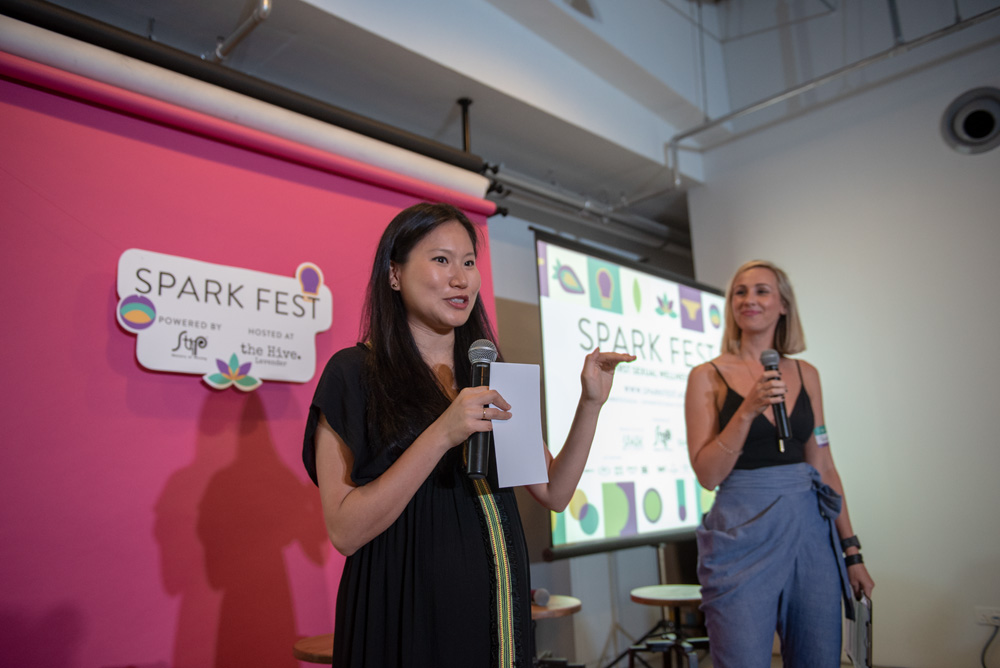
What are some questions you have that's unresolved about Sexual Wellness? Is this a topic that you think should be explored more given the lack of education growing up? Share them with us! Drop us a note at: [email protected].

